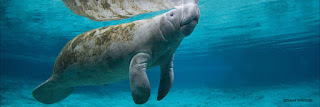Science is Fun Fridays!

Scientists have sequenced the entire genome of an Australian lungfish to better understand the genetic adaptations of terrestrialization - when the first fish dragged itself out of the water onto land about 430 million years ago. Lungfish are ancestors of those Sarcopterygii. It is the longest genome to date, 14 times the human genome. It has 43 million base pairs with large intergenic regions and repeating introns, which don't code for proteins. "Phylogenomic analysis ascertained that the lungfish occupy an evolutionary key-position as closest living relatives to tetrapods, underscoring their importance for understanding innovations associated with terrestrialization," the authors wrote. These adaptations include: Development of limb-like structures A single dorsal lung The ability to detect scents in the air "It is genomically halfway between a fish and a land-based vertebrate." This is Granddad, the oldest known lungfish. He had to be euthanized in 2017 ...










